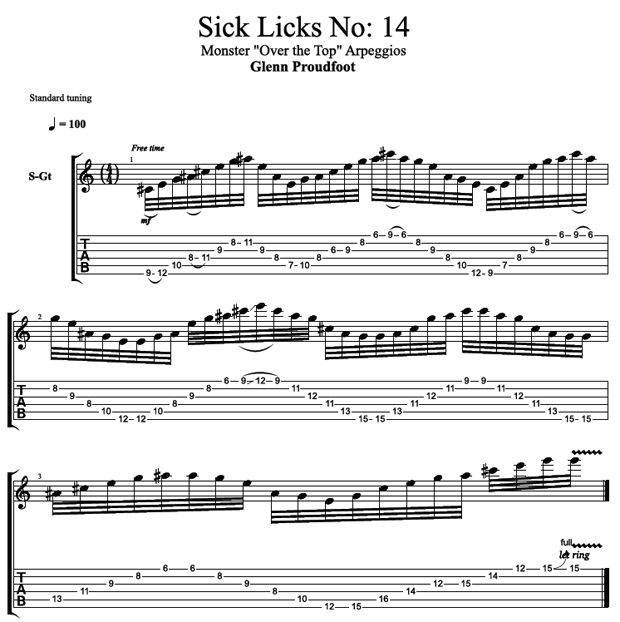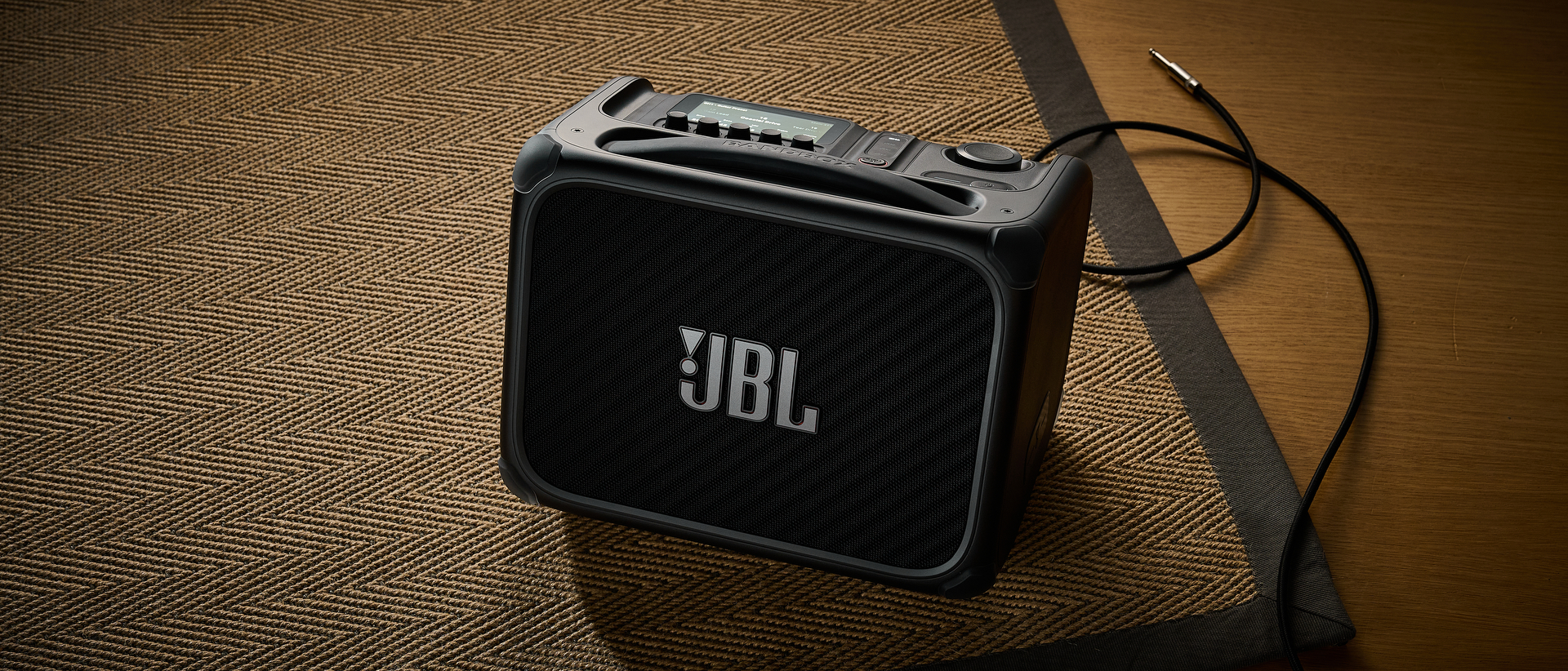Sick Licks: Mimic Keyboard Players' Techniques with Over-the-Top Arpeggios
All the latest guitar news, interviews, lessons, reviews, deals and more, direct to your inbox!
You are now subscribed
Your newsletter sign-up was successful

In this Sick Lick, I'm using the diminished 7th scale. This lick is based around playing six-string arpeggios with the “over the top” technique.
These arpeggios are one note per string. I love this technique because it allows me to cover the neck very quickly while freely changing positions on the fretboard.
My inspiration for this kind of playing came from listening to piano players. I'd hear the way they played arpeggios and try to mimic it on the guitar. Because piano players have both hands on the keys, they are able to create some monstrous-sounding arpeggios and runs. The closest I have come to replicating this sound is by using this technique. As I was always fascinated with speed, I naturally gravitated to arpeggios as they are the best way to create fast runs on the guitar.
Traditionally, we play arpeggios of chords. What I tend to do, though, is apply arpeggios to solos. I am not concerned with the chords I might be playing against; rather, I build and create arpeggios as passing runs to bends, etc. I simply build the arpeggio shapes out of the scales I am using. The reason this works is simple: The notes within the scale are notes that are all within the key of the solo; therefore, we can create any arpeggio out of the notes within the scale.
The thing to note here is that with the guitar, we tend to break the rules of the traditional way music is taught. This is most prevalent when soloing. We bend notes, slide in and out of notes, tap notes, etc. All these techniques are not as commonly used on other instruments, so there's no reason we cant look at arpeggios with the same thinking. Like I said, I use arpeggios like other guitarists would use runs; they are the means by which I like to maneuver around the guitar.
I start this lick with a combination of five-string arpeggios, the first starting on the low E, then transitioning to the A string. The first six-string arpeggio appears next with the arpeggio starting on the high E string, moving to the low E. It's from here that I bring my thumb into play to create the pivot to swing my left hand over the top to start fretting the guitar.
The first arpeggio I fret over the top is a five-string arpeggio starting on the A string. From there I move into a series of six-string arpeggios using slides to move up and down the neck (This is the section I'd focus on the most; it requires a lot of concentration and control to pull it off, and it's great fun!).
All the latest guitar news, interviews, lessons, reviews, deals and more, direct to your inbox!
From here, I once again bring my left thumb into play to create the pivot to swing my left hand back to the normal fretting position, and I finish with a five-string arpeggio leading into a bend on the high E.
These licks are great fun and very challenging. They are certainly not essential for playing great guitar, but it's always great to challenge yourself!
Thanks, and I hope you enjoy! Please feel free to join me on YouTube here.

Australia's Glenn Proudfoot has played and toured with major signed bands and artists in Europe and Australia, including progressive rockers Prazsky Vyber. Glenn released his first instrumental solo album, Lick Em, in 2010. It is available on iTunes and at glennproudfoot.com. Glenn was featured in the October 2010 issue of Guitar World and now creates "Betcha Can’t Play This" segments and lessons for GW. Glenn also has a monthly GW column, "Loud & Proud," which offers insight into his style and approach to the guitar. Glenn is working on a project with Ezekiel Ox (ex Mammal) and Lucius Borich (Cog), which is managed by Ted Gardner, ex-Tool and Jane's Addiction manager. The band has done pre-production on 22 tracks and is set to hit the studio and finish their first studio album. The album is set for release in 2012. Glenn also is working on the followup to his debut album; it, too, will be released in 2012.
